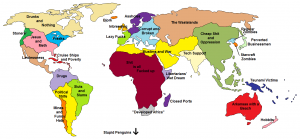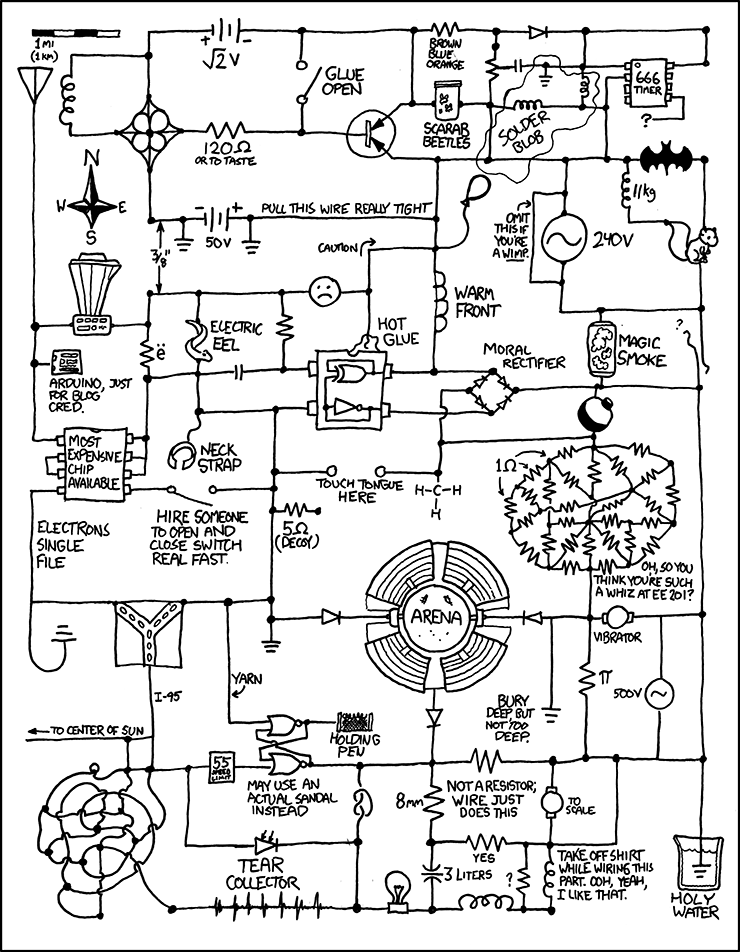Diverse Dilldalltråden 1.5
- Trådstarter Boffen
- Startdato
Diskusjonstråd Se tråd i gallerivisning
-
C
Cyber
Gjest
[video]jN6xtd61Eb0[/video]
Det er så på kornet!- Ble medlem
- 18.02.2009
- Innlegg
- 24.587
- Antall liker
- 15.156
- Sted
- Kopervik og Bergen
- Torget vurderinger
- 1
Flinka jentå! Sett bort fra treffsikkerheten med hammeren, noe som kan være et absolutt pluss på sikt. Dessverre bruker de verktøy med større overflate når de slår andre ting enn spikre. Gjerne av tungt jern med dobbel bunn, ikke noe lett i alu fra Ikea...- Ble medlem
- 23.03.2006
- Innlegg
- 20.111
- Antall liker
- 10.652
Noen som vet hvor en får kjøpt slike vernebriller som denne snekkeren brukte?mutz skrev:
Har hyrt snekker til uteboden.Onsdag ble en ni meter lang campingvogn lagt ut til salgs på finn.no.
«Første- og sistegangscamper selger sin vogn som kun er brukt i to og en halv uke. Etter to uker med 30.000 lynnedslag og høljeregn uansett hvor ferden gikk, to havarier på trekkbilen og influensa som endte med lungebetennelse og sykehusopphold, har eieren allerede gått lei!!»Vvredensgnag
Gjest
Hvem får denne i hodet?Vedlegg
-
227.7 KB Visninger: 333
Vvredensgnag
Gjest
He-he. Minner meg om min andre sommer i et hus jeg hadde ved sjøen. Det regnet tett, dag etter dag, i fellesferien. Jeg stod og fisket utenfor huset da en seilbåt kom inn, for motor. I baugen står en dame med stor bag over skulderen. Mannen ved roret.erato skrev:Onsdag ble en ni meter lang campingvogn lagt ut til salgs på finn.no.
«Første- og sistegangscamper selger sin vogn som kun er brukt i to og en halv uke. Etter to uker med 30.000 lynnedslag og høljeregn uansett hvor ferden gikk, to havarier på trekkbilen og influensa som endte med lungebetennelse og sykehusopphold, har eieren allerede gått lei!!»
Han legger inn til bryggen og jeg hører henne rope til ham: "Du kan ta denne helvetes forpulte båtferiegreia di og stappe den langt bak." Så hopper hun i land med bagen og blir borte. Han ser litt fortapt bort på meg, og bakker båten.
;D ;D ;Dbjarnetv skrev:GGjestemedlem
Gjest
Vvredensgnag
Gjest
Vvredensgnag
Gjest
Morsom! Men jeg vil klage litt over at Napoleon er tatt med. I ettertid var det viktig for Europas aristokrati og kongehus å spre at Napoleon var en tyrann.Gjestemedlem skrev:
Han gjennomførte flere viktige reformer, som store deler av Europa nyter godt av idag. Og som naturligvis i betydelig grad reduserte makten til aristokratiet og kongehusene, så liten grunn til å stusse over hvorfor de slo seg sammen mot ham.
Kortversjonen:
Reforms in Law:
In 1804, Napoleon took on the legal system of France. The system of laws was in a state of chaos. Laws were not codified and were based on Roman law, ancient custom or monarchial paternalism. During the revolution, many laws were changed. It was difficult to determine what law applied in any given situation, and laws were not equally applied to everyone.
The mishmash of laws were codified and written clearly so that the people could determine what law applied. It incorporated much of the Roman law. For the first time in history, the law was based on reason and founded on the notion that all men were equal before the law. It guaranteed individual rights (except for women and blacks) and the security of property. In short it codified many of the ideals of the revolution. The Napoleonic Code became profoundly influential to other European countries in the 19th century.
Reforms in Government:
Napoleon centralized the government, putting control firmly in the hands of the national government. It became more efficient. Advancement in the civil service and the military was based on merit rather than rank. The tax system was applied equally to all.
Reforms in Education:
Napoleon built many new lycees, schools for boys age 10 to 16. He recognized the importance of education in producing citizens capable of filling positions in his bureaucracy and military. Although he did not create a system of mass education, education was more available to the middle class than it ever had been before. At a meeting in 1807 he declared:
"Of all our institutions public education is the most important. Everything depends on it, the present and the future. It is essential that the morals and political ideas of the generation which is now growing up should no longer be dependent upon the news of the day or the circumstances of the moment. Above all we must secure unity: we must be able to cast a whole generation in the same mould."Har vi endelig fått svaret på hvorfor reproduksjon av musikk låter mest overbevisende med lyset av?
The Human Brain is Sensitive to Light, Breakthrough Findings From Valkee and the University of Oulu
;DThe Valkee bright-light headset channels bright light direct to the human brain via ear canals to prevent and cure mood swings and circadian-rhythm disorders such as jetlag.GGjestemedlem
Gjest
Vedlegg
-
38.5 KB Visninger: 59
Utrolig bra gjort. Tenk at han klarer å sykle rundt på den gamle industritomten uten å punktere. Ikke til å tro!Tor Nado skrev:Ser enkelt ut.- Ble medlem
- 23.03.2006
- Innlegg
- 20.111
- Antall liker
- 10.652
Ja ?? Lagt egningen inn på feil kategori? Den skulle ha vært på DIY.
seriøs?Pink_Panther skrev:Ja ?? Lagt egningen inn på feil kategori? Den skulle ha vært på DIY.- Ble medlem
- 23.03.2006
- Innlegg
- 20.111
- Antall liker
- 10.652
Ja, er det noe galt??Griffenfeldt skrev:
seriøs?Pink_Panther skrev:Ja ?? Lagt egningen inn på feil kategori? Den skulle ha vært på DIY.Jeg synes tegningen er artig. Du kan jo prøve å lage noe med de tegningene, så kan du rapportere til oss etterpå.- Ble medlem
- 18.02.2009
- Innlegg
- 24.587
- Antall liker
- 15.156
- Sted
- Kopervik og Bergen
- Torget vurderinger
- 1
Hvis de ikke får til å lage noe som fungerer så har i alle fall konstruksjonen tåresamler, noe enhver god DIY-konstruksjon bør ha.Griffenfeldt skrev:Jeg synes tegningen er artig. Du kan jo prøve å lage noe med de tegningene, så kan du rapportere til oss etterpå.GGjestemedlem
Gjest
Fascinerende optisk illusjon
[video]z9Sen1HTu5o[/video]Vvredensgnag
Gjest
Kinesisk basket-lag fra militærakademi mot et universitetslag fra Georgetown U, under Bidens statsbesøk i Kina.
Hva kan gå galt?
http://www.washingtonpost.com/sport...nds-in-brawl/2011/08/18/gIQAgVDEOJ_video.html- Ble medlem
- 18.02.2009
- Innlegg
- 24.587
- Antall liker
- 15.156
- Sted
- Kopervik og Bergen
- Torget vurderinger
- 1
Idrett er dødelig alvor!Vvredensgnag
Gjest
Take that, USA!baluba skrev:Idrett er dødelig alvor!Vedlegg
-
104.6 KB Visninger: 325
- Ble medlem
- 18.02.2009
- Innlegg
- 24.587
- Antall liker
- 15.156
- Sted
- Kopervik og Bergen
- Torget vurderinger
- 1
Lurer på om de hadde reagert like heftige hvis kampen foregikk i et annet land enn Kina? Lite sannsynlig, eller...?Vvredensgnag
Gjest
Apple er nå verdt mer enn de 32 største bankene i Eurosonen.
http://www.reuters.com/article/2011/08/19/us-apple-worth-idUSTRE77I46520110819Vedlegg
-
136.7 KB Visninger: 48
Trur dere ikke at den jævla naboen sto og ringte på dørklokka mi klokka
halv fire i morrest. HALV FIRE!! Heldigvis for han var jeg fremdeles oppe
og øvde på slagverket mitt. Det er ikke alle som har lært seg folkeskikk! HALV FIRE!!!Vvredensgnag
Gjest

Lysaker.bambadoo skrev:;D ;D
Godt sykkelen er låst. Gikk forbi denne på Aleksander Kiellands plass i Oslo.Vedlegg
-
143.7 KB Visninger: 49
- Ble medlem
- 18.02.2009
- Innlegg
- 24.587
- Antall liker
- 15.156
- Sted
- Kopervik og Bergen
- Torget vurderinger
- 1
Det er utrolig at folk ikke klarer å lære seg å låse sykkelen sin effektivt engang. Det første jeg lærte guttungen da han begynte å sykle litt lenger bort fra hjemmet var å låse bakhjulet sammen med rammen til en stolpe.GGjestemedlem
Gjest
Å nei.. noen stjeler søppelet vårt og tar det med seg ut av landet... de må stoppes... :-\
http://www.bt.no/nyheter/lokalt/Batteribandar-raidar-Bergen-2560046.htmlGjestemedlem skrev:Å nei.. noen stjeler søppelet vårt og tar det med seg ut av landet... de må stoppes... :-\
http://www.bt.no/nyheter/lokalt/Batteribandar-raidar-Bergen-2560046.html
Brukte bilbatterier er nå en ting, men det stopper ikke der langt ifra. En kollega har fått frastjålet
markisen på hytta 2 ganger. De skrur den rett og slett ned.
De kjører rundt i villastrøk i oslo på dagtid og rekognoserer, for så å slå til nattestid.
Man kan faen ikke ha snøskuffe, rullebrett, sparkesykkel eller noen løse gjenstander i
oppkjørselen lenger, det forsvinner rett og slett. På Lindøya hadde de i løpet av ei natt
tatt med seg mesteparten av kirsebær, rips og solbær. Tar siste båten ut og første båten inn
igjen om morgenen. Listen på slike ting er uendelig.
Åpne grenser my ass.
Forøvrig venter jeg i spenning på tråden for Oslos beste butikk for garn og strikketøy.
Det må være stort behov for en sånn tråd på HS.- Ble medlem
- 18.02.2009
- Innlegg
- 24.587
- Antall liker
- 15.156
- Sted
- Kopervik og Bergen
- Torget vurderinger
- 1
Bare for ordens skyld: Stemte du ja eller nei til EU? Regner med at det var på den tiden du anså deg selv for å være venstreorientert, så misstanken går i retning nei. Men du har jo også opplyst at du har stemt AP, så det kan jo også være et ja.Tor Nado skrev:Åpne grenser my ass.Vvredensgnag
Gjest
Norsk fengselcelle, litt stiligere enn den Havnå sitter i, men likevel.

Havnås celle:

Problemet er vel ikke grensene og om de er åpne, men snarere at vi inviterer dem til et ganske fint opphold om de skulle bli tatt.SSlubbert
Gjest
Såvidt meg bekjent er det vist at det å være innesperret og fratas selvråderetten er en såpass stor belastning i seg selv, at det blir relativt uvesentlig om cella har skummadrass eller fjærmadrass. Når man fratas friheten blir romstandarden høyst irrelevant.vredensgnag skrev:Problemet er vel ikke grensene og om de er åpne, men snarere at vi inviterer dem til et ganske fint opphold om de skulle bli tatt.
Og hensikten med fengsel er heller ikke å plage folk. -
Laster inn…
Diskusjonstråd Se tråd i gallerivisning
-
-
Laster inn…















